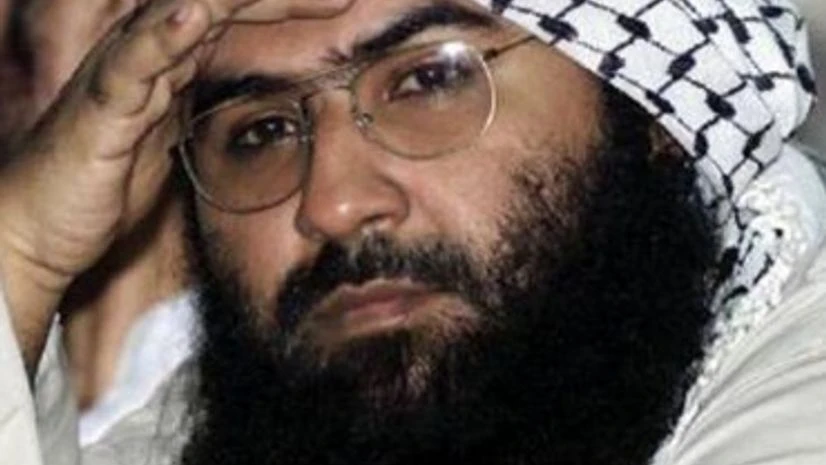Government Friday slammed the use of the "hidden veto" and demanded accountability, saying the UN's general members are "never ever" informed of the reason for not acceding to requests for sanctioning terrorists, days after China blocked India's bid to ban JeM chief Masood Azhar.
India's Permanent Representative to the UN Syed Akbaruddin strongly criticised the "anonymity" surrounding the functioning of the UN Security Council's Al-Qaeda and Taliban Sanctions Committee saying the general UN membership is kept in the dark of how the council's 15 members decide on requests made by other nations to sanction terrorists.
"The procedures of unanimity and anonymity of the al-Qaeda, Taliban and ISIS Sanctions Committees need to be revisited. Currently, they result in a lack of accountability," Akbaruddin told the UN Security Council in an open debate on 'Threats to International Peace and Security Caused by Terrorist Acts' here.
Against the backdrop of China last month again blocking India's bid to ban the mastermind of the Pathankot terror attack Azhar in the UN Sanctions Committee, Akbaruddin said each of the 15 members in the committee now have a veto.
Without naming China, he said none except these 15 members are told of who is it that has wielded the veto in a specific instance.
"The general membership of the UN is never ever formally informed of how and why requests for listing terrorists are not acceded to. Counter terror mechanisms such as the Sanctions Committees that act on behalf of the international community need to build trust not engender impunity by the use of this form of a 'hidden veto'," Akbaruddin said.
He said the sanctions committees need to foster tangible support for greater responsiveness to member states' requests for preventive listings to counter terror.
"They also need to follow up complaints against violations by listed individuals and entities more vigorously," he said.
Akbaruddin remarks come against the backdrop of China once again blocking a bid by India to ban Azhar following January's terror attack on the Pathankot airbase.
China had at the last moment stopped the UN sanctions committee from designating Azhar as a terrorist, maintaining that the case "did not meet Security Council's requirements".
It was not the first time China blocked India's bid to get Pakistan-based terror groups and leaders proscribed by the UN.
The UN had banned the Jaish-e-Mohammed in 2001 but India's efforts for slapping sanctions on Azhar after the 2008 Mumbai attack also did not fructify as veto-wielding China did not let the request go through apparently at Pakistan's behest.
When asked earlier this month as to why China had put a hold on the listing request by India against Azhar, Chinese envoy and President of the Security Council for the month Liu Jieyi had said that any listing would have to meet the requirements, stressing that it was the Council members' responsibility to ensure that the criteria were followed.
Akbaruddin said the UN is uniquely placed to provide the platform necessary for real cooperation and coordination in the common fight against terrorism but the Security Council alone cannot sufficiently respond to tackling terrorism.
"This cooperation needs to encompass norm-setting, rule-making as well as practical and specific ways to counter terrorism. It is for this reason we feel that the actions of the Security Council alone, no matter how effective in responding to identified threats, cannot provide a sufficient response to the global scourge of terror," he said.

Stressing that terrorism is "extracting a deadly price," Akbaruddin said terrorists are now globally networked and have expanded their footprint.
He said terrorists have "mutated into hydra headed monsters" while the international community's counter terrorism efforts are still in an "embryonic form".
Akbaruddin said while the world community made progress on some fronts, forging a broad-based approach on an issue like countering terror is a test it has yet to pass at the UN adding "Yet, it is also a test we cannot afford to fail".
He stressed that the adoption of the Comprehensive Convention on International Terrorism is an imperative to put the counter terror efforts of governments in a broader normative construct.
"This will put in place a framework that enables local action to fit with global norms. It will generate coherence in national responses against what is a challenge to all of us collectively," he said.
While nations work to advance the prospects of a normative framework in the form of the CCIT, Akbaruddin said there are several other steps that can be taken to delegitimise terrorism, including agreement that all terror attacks are criminal and cannot be justified.
He said nations have to agree with the proposition that all terrorist acts are criminal, "no matter whenever, wherever and by whomsoever these are committed".
"The world today does not accept any 'cause' as justification for terrorism. Every outcome document referring to terrorism needs to reinforce this approach. Statements of solidarity when attacks happen and expressions of policy independent of happenings have a value often underestimated," he said.
He underscored that frameworks like the Financial Action Task Force (FATF) that sets standards with respect to combating money laundering and terrorist financing are important elements in degrading and defeating terror groups.
"We need to effectively control upstream and downstream activities associated with terrorism and also address the ecosystem that spawns terrorism," he said adding that India supports the formulation of a legal framework to criminalise Foreign Terrorist Fighters.

)
